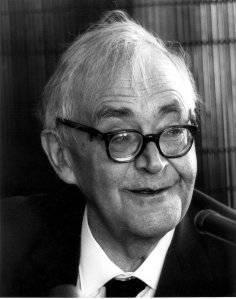Here is Barth talking about event, and how, as Samuel Adams says: “If the event contextualizes us, rather than being contextualized by us, then we can say that it is something new,  since its origin is “outside” of us and has the nature of an “event. . . .”:
since its origin is “outside” of us and has the nature of an “event. . . .”:
God’s revelation in its objective reality is the person of Jesus Christ. In establishing this we have not explained revelation, or made it obvious, or brought it into a series of the other objects our knowledge. On the contrary, in establishing this and looking back at it we have described and designate it a mystery, and not only a mystery but the prime mystery. In other words, it becomes the object of our knowledge; it finds a way of becoming the content of our experience and our thought; it gives itself to be apprehended by our contemplation and our categories. But it does that beyond the range of what we regard as possible for our contemplation and perception, beyond the confines of our experience and thought. It comes to us as a Novum which, when it becomes an object for us, we cannot incorporate in the series of our other objects, cannot compare with them, cannot deduce from their context, cannot regard as analogous with them. It comes to us as a datum with no point of connexion with any other previous datum.[1]
This is a profound yet seemingly straightforward point, or it should be! Barth’s point is that God in Christ is indeed the Novum precisely because He is not from us, He is not contingent upon our creaturely modes of signification, but, indeed, He is the living and Triune God who has come near to us (‘nearer to us than we are to ourselves’), and for whom there can be no analogy. For Barth, God is sui generis, or of a classification that God alone maintains singularly. He is the primordial, history de-limiting, and sustaining reality without whom there would be no reality to begin with. And because this is the case, as Barth so eloquently articulates, there is nothing anterior to God, not even, especially not our knowledge of God, and thus of ourselves. The human condition is such, by way of implication, that unless God confronts and contradicts us with who He is, we have no hope of knowing who we are; because we only are precisely as we stand coram Deo before the living God.
If only more Christians could come to know this, and more than that: internalize this reality. People in general, and even malnourished, Christians in particular, are never pushed to think deeply about ‘being.’ As such, they simply operate as if life is their possession. And when God is introduced into this combine, under these false conditions, God becomes a functional possession of the ‘human given.’ This is why I so adamantly oppose so much of the classical prolegomena, or theological methodology. It supposes that human beings, as such, have a givenness, a “possessedness” all their own, as that is ostensibly supplied by God as the Creator waiting to be ‘discovered’ in the vestiges of the created order. It is this idea of the ‘created order,’ or pure nature[2], that funds an analogy of being wherein creatures have ‘natural’ capacity to think God from His purported ‘effects,’ in the created taxis, back to their antecedent ‘cause,’ who is God. And it is this framework wherein God becomes sublimated by His created order, at least epistemologically, insofar that it is maintained that there are analogies for thinking God in the created order, albeit, asymmetric or with dissimilitude, vis-à-vis their ultimate cause.
As Barth has reminded us, God is God.
[1] Barth CD I.2, 172 cited by Samuel V. Adams, The Reality of God and Historical Method (Downers Grove, Illinois: IVP Academic Press,), 135.
[2] See Matthew Bernard Mulcahy, “Henri de Lubac argues that, in early modern times, a pernicious concept began to become commonplace in Roman Catholic theology: this concept is ‘pure nature.’ Pure nature is human nature, considered without reference to grace or to the supernatural destiny of personal union with God. . . .”
